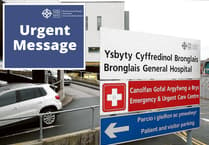If there was just one thing Mark Drakeford’s government could do to help curb, longer term, reruns of the mayhem stemming from Tory administrations, it would be to make regular, vigorous political debate a distinct and specific part of Welsh schools’ core curriculums.
Currently, ‘citizenship and politics’ as a subject crops up in various areas of the school agenda, with an attendant legal requirement on teachers to observe impartiality. You can’t really argue with that, but the flip-side of this injunction will be anxiety about straying beyond the non-partisan, a fear with definite drawbacks.
The danger is that, for school students, a mere clinical teaching of the subject may well fail to activate meaningful involvement with a subject central to everyone’s lives. There’s a need to guard against freedom of expression and of thinking being frustrated by an over-rigorous insistence on steering a middle course. For teachers, that may not be easy.
Which is why students need specific curricular time for regular, free-flowing formalised political debate. Without this chance to work out and air views, they will be inadequately clued-up to discern the ceaseless undercurrent of persuasion and overt propaganda generated by too many politicians and their media and social media allies. Or, in addition, to recognise how data and algorithmic control is more and more being used to influence behaviour, all the way from discreet or subliminal prods to how we vote.
There are reasons to be cheerful. During Greta Thunberg’s headiest days, secondary school students in Aberystwyth repeatedly took to the streets in solidarity with Extinction Rebellion’s cry from the heart for a planet on the edge of elimination.
There’s no argument that, if we want an adequately functioning democracy, we can’t do without a population that, politically, has got its head screwed on. And there’s a way to go.
Just after Liz Truss finally slipped out the back door, voters were asked what they thought.
Radio interviewer: “Who do you think should be the next prime minister?”
Person in street: “Oh, Boris. He was such fun, and he had the country at heart. He was just hounded out of office.”
Interviewer: “What about Keir Starmer?”
Second voter: “No, never. I mean, on television sometimes, he doesn’t even wear a tie.”
Exceptional views? Perhaps. Or perhaps a pointer to a lot of minds nicely softened by the manipulators of what passes for our democracy.
New balls, please...
Suddenly, for a moment, tennis appeared to be about to become a political power-tool, a potent expression of consumer revolt against the ruthless manoeuvrings of the international energy market and its puppets in the supply industries.
In Aberystwyth at least.
Gone would be any suggestion of Wimbledon niceties. From now on, and with a seven-month Welsh winter approaching from beyond the baseline, Aberystwyth’s version of the game would be as a spearhead in the latest chapter of the class-war, an example of grassroots rebellion to perhaps be copied throughout energy-price-exploited Britain.
Quite simply, tennis was going to be an electricity and gas substitute. It was going to keep us warm. Instead of crouching over one-bar electric fires, or trying to revive frozen fingers by clutching hot-water bottles filled from kettles over back-garden camp-fires started with old energy bills, we’d be out there, limbs swinging, smashing the ball at power company chief executives posing as blameless partners on the other side of the net.
Yes, well that was the plan. Until the county council seemed to scupper this ballsy uprising with a scheme to encroach on the town’s main tennis-courts at Plascrug by putting up a new building to take Ceredigion Museum exhibits now in storage. That plan, however, met a deluge of protest, including from players backing the soon-to-be-announced Aberystwyth End the Energy Racquet campaign.
Never let it be said, though, that this council can’t take a hint. It has duly pulled the project, explaining that it hadn’t followed “due process” and “was not signed off at the appropriate level of management”. (The suspicion must be that there may be those insensitive enough to seize on the latter statement to make an easy jibe about there being so many managers no-one was sure whose job it was to propel the scheme onwards.)
There follows a blatant Truss-style U-turn, which may infringe her copyright, the authority saying “it has no intention of reducing the external tennis court area at Plascrug… contrary to the site plan on the original planning application.” Departing from the Truss formula, however, the council then “apologises for any unnecessary concerns caused”.
But do shades of Kwasi Kwarteng remain? A central preference of the ex-chancellor was unfunded tax-cuts. So what, after all, would the Plascrug new-build have cost, and from where, for a council which says it’s more or less broke, would the money have come?
Meanwhile, assuming the dosh can be found, the heritage centre planned for Plascrug could still go ahead – housed, very appropriately, in an existing building that is part of Aberystwyth’s built heritage. The grade two-listed former chapel, more recently Academy pub, in Upper Great Darkgate Street, stands glorious and empty and for sale. The museum might even be able to spare wall-space for some of the thousands of publicly-owned, but never seen, oil paintings in storage at the National Library.




Comments
This article has no comments yet. Be the first to leave a comment.